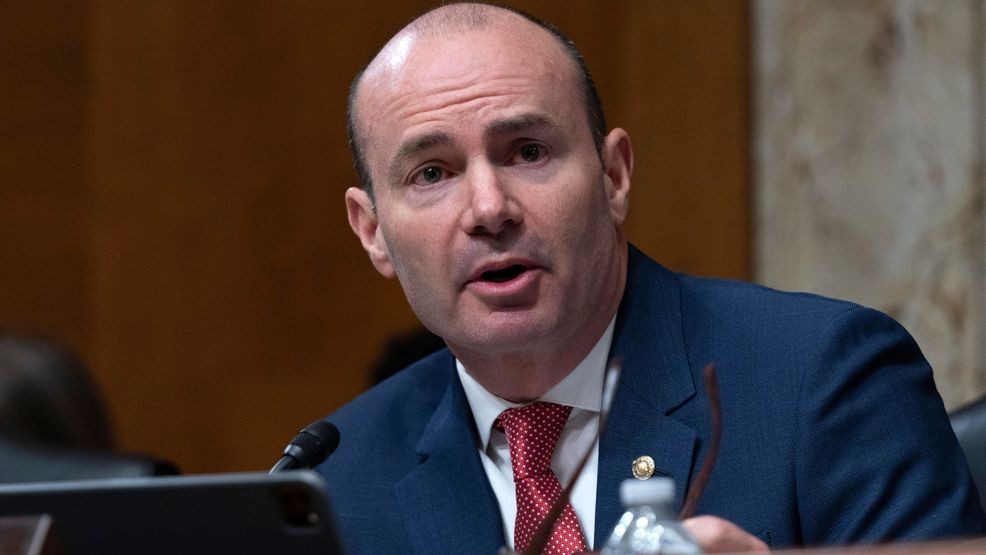Utah Sen. Mike Lee announced the withdrawal of a land sales provision that drew criticism from Utahns across the political spectrum.
Lee announced the withdrawal on Saturday, June 28, saying he pulled the provision after he was unable to secure “safeguards to guarantee that these lands would be sold only to American families.”
“Over the past several weeks, I’ve spent a lot of time listening to members of the community, local leaders, and stakeholders across the country. While there has been a tremendous amount of misinformation – and in some cases, outright lies – about my bill, many people brought forward sincere concerns,” Lee said in a social media post.
MORE | Lee’s Public Land Provision:
- Millions of acres of public land could be sold under proposal by Sen. Mike Lee
- Governors of Western states give mixed reactions to proposed federal land sell-off
- Take 2 Podcast: Salt Lake No Kings 50501 shooting; Sen. Mike Lee draws criticism
Lee proposed to put millions of acres of federally managed public land in Utah up for sale. Some of these lands included Big and Little Cottonwood Canyons and the areas surrounding Utah’s famous national parks. He argued this could help address the housing crisis, saying, “The truth is that federal land is a massive, underutilized asset.”
However, many Utahns, environmentalists, and Democratic politicians were fiercely against the provision.
Perry Hall, a member of the group Backcountry Hunters and Anglers,
previously told KUTV
that there was no guarantee that the land would have been used for housing, and if it did, the housing in those areas would likely not be affordable.
“You’re never going to build affordable housing at the top of Logan Canyon or at Alta. Those are going to be sold to other folks who have more financial gain in mind,” Hall said at the time.
Hall also spoke of the fear of losing access to the public lands if they are sold, saying the land “belongs to everybody.”
Scott Braden, executive director of the nonprofit Southern Utah Wilderness Alliance (SUWA), responded to Lee’s decision to withdraw the provision, saying it “shows just how universally unpopular his idea is.”
“While we’re glad to see Senator Lee has removed his sell-off plan from the Budget Bill and are celebrating this win, we know Lee’s underlying goal remains the same: to force the sale of America’s public lands using any excuse or legislative opportunity he can find. Senator Lee’s vision for the American West as a place without public lands is wildly out of touch with what Americans from all walks of life want to see,” Braden said.
Lee said he continues to believe the federal government owns too much land and is mismanaging it, a sentiment shared by many Republican politicians.
Lee’s proposed legislation was the latest in a series of Utah politicians’ attempts to take control of federal lands in the state. Last year, the state joined a lawsuit suing the federal government over control of millions of acres of land. The U.S. Supreme Court declined to hear the suit.
“President Trump promised to put underutilized federal land to work for American families, and I look forward to helping him achieve that in a way that respects the legacy of our public lands and reflects the value of the people who use them most,” Lee said in his statement. “I’m grateful to everyone who took the time to offer thoughtful feedback. Your voices helped strengthen this bill, and they will continue to shape the path forward.”
KUTV’s Brian Will contributed to this report.
___
AP’S WORDS BENEATH, JUST FOR CONTEXT
Lee, a Utah Republican, has proposed selling millions of acres (8.300 square kilometers) of public lands in the West to states or other entities for use as housing or infrastructure. The plan would revive a longtime ambition of Western conservatives to cede lands to local control after a similar proposal failed in the House earlier this year.
Lee’s plan has revealed sharp disagreement among Republicans who support wholesale transfers of federal property to spur development and generate revenue, and other lawmakers — including GOP senators in Montana and Idaho — who are staunchly opposed.
The proposal comes as the Trump administration said Monday it will move to rescind a 2001 rule that blocked logging on national forest lands. The so-called roadless rule has angered Republicans, especially in the West where forests sprawl across vast, mountainous terrain and the logging industry has waned.
Democrats and environmental groups roundly oppose both plans as giveaways to private interests that will threaten clean water and wildlife and block recreation on public lands.







